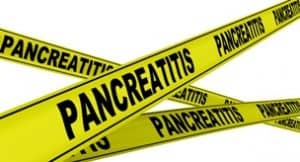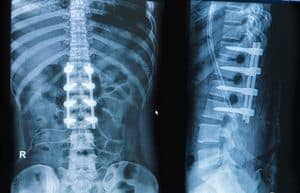The extent of your heart failure made you a candidate for a heart transplant. After significant physical and psychological evaluations, you were able to get a heart when one became available and you are likely very grateful for the opportunity that it has provided you. However, a heart transplant does not always mean that you will be able to go back to work after surgery.
Generally, if you cannot work after a heart transplant surgery, you may be eligible for Social Security disability in one of the following ways:
However you may qualify, you will need to present convincing evidence to the Social Security Administration. This will include medical records and other documentation. Our board-certified Social Security disability lawyers can help you submit a complete application and can help get you the benefits for which you qualify as quickly as possible. To learn more, please contact us via this website or by phone at your earliest convenience.

A lung transplant is a big deal. You consented to the procedure because you hoped it would improve the quality of your life. However, you are also consenting to at least several days in the intensive care unit and a one to three week hospital stay. After that you will require close medical monitoring, lifelong immunosuppressant medications, and a lifetime care plan. You may be unable to work.
The Social Security Administration recognizes that a lung transplant can be disabling. Accordingly, pursuant to Section 3.11 of the Blue Book Listing of Impairments:
Additionally, you may be found eligible in another way. Even if you do not meet the requirements of Section 3.11, you may be eligible for benefits if you meet another listing in the Listing of Impairments, if your condition is equal in severity to a listing in the Listing of Impairments, or if you lack the functional capacity to work.
Even though Section 3.11 is clear about the terms of eligibility after a lung transplant, you must still provide a compelling application for disability benefits together with all supporting medical documentation to the Social Security Administration. Our board certified attorneys can help you do that. For more information, please start a live chat with us now or download a free copy of our report, Social Security Disability: What You Need to Know.

 You ask an important question. You may be unable to work a regular job, but you may still want to contribute to your community or to your family as best you can. Accordingly, you may decide to do some volunteer work or to help family or friends with childcare or eldercare responsibilities. Either arrangement may be much more flexible than a paying job and allow you the time and freedom that you need to take care of your health issues.
You ask an important question. You may be unable to work a regular job, but you may still want to contribute to your community or to your family as best you can. Accordingly, you may decide to do some volunteer work or to help family or friends with childcare or eldercare responsibilities. Either arrangement may be much more flexible than a paying job and allow you the time and freedom that you need to take care of your health issues.
However, before you sign up for volunteer work or offer to take care of a relative or friend, it is important to consider two things:
Volunteer work has a lot of benefits. It can provide you with a reason to leave the house, with social opportunities, and with a sense of purpose. However, the Social Security Administration is concerned with whether you have the ability to earn an income. If you volunteer many hours a week and perform many of the same tasks that are required in a paying job then it could impact your eligibility.
It is important to discuss your volunteer activities with your Social Security disability lawyerso that you can have a full understanding of how they could impact your Social Security disability eligibility. To learn more about your specific situation, please contact us today to schedule a confidential consultation.

 You may be eligible for Social Security disability benefits, but your eligibility is not automatic. The Social Security Administration does not currently include pancreatitis as a condition in the Listing of Impairments. Therefore, you are going to have to prove that this chronic condition has caused physical limitations that leave you unable to work.
You may be eligible for Social Security disability benefits, but your eligibility is not automatic. The Social Security Administration does not currently include pancreatitis as a condition in the Listing of Impairments. Therefore, you are going to have to prove that this chronic condition has caused physical limitations that leave you unable to work.
Pancreatitis occurs when the pancreas gland is inflamed. When the pancreas is inflamed and not working properly, the body’s production of insulin and digestive enzymes can be impacted. All forms of pancreatitis are extremely painful and may result in short term disability. However, the symptoms of acute pancreatitis go away once the inflammation of the pancreas goes away. Chronic pancreatitis, however, can continue with symptoms such as:
Typically, people who suffer from chronic pancreatitis are eligible for Social Security disability in one of two ways:
If you suffer from chronic pancreatitis, it is important to have thorough medical records and to work with a board certified lawyer who can help you get the benefits you deserve. To learn more, we encourage you to read our FREE book, Social Security Disability: What You Need to Know, and to contact us directly to have your questions answered.

Yes, you are eligible for Social Security disability benefits if your status on the heart transplant waiting list is either 1a or 1b.
As you already know, there are more people who need heart transplants than there are healthy hearts available for transplanting. Accordingly, people in need of heart transplants are assigned a certain status when they go on the national waiting list maintained by the United Network of Organ Sharing. The status reflects the priority in which they should receive a heart when one becomes available.
Currently, there are four potential statuses that you may be given when you are on the heart transplant waiting list. These statuses include:
Patients who are assigned status 2 or status 7 are not automatically eligible for Social Security disability benefits.
However, heart transplant waiting list status 1a and status 1b are included on the Social Security Administration’s Compassionate Allowances List. That means that not only will you be eligible for benefits, but that your claim may be fast tracked.
Once your heart transplant surgery occurs, you may continue to be eligible for Social Security disability benefits pursuant to Section 4.09. Specifically, you may be eligible for benefits for one year post surgery or longer if you meet the requirements for eligibility pursuant to a different listing or because of your inability to work.
You are doing a lot of waiting right now. As you wait for word that a heart is available for you, please make sure that your right to receive Social Security disability benefits is protected and that your wait for Social Security disability is no longer than it has to be. Please contact a board certified attorney via this website or by phone today to learn more.

Chronic leukemia is often treatable when it is diagnosed early. However, once the cancer has reached the blast phase it is often fatal and it is included in the Social Security Administration’s list of compassionate allowances. Inclusion on the list of compassionate allowances will allow your case to proceed through the eligibility process faster than it otherwise would, but it does not change the criteria for Social Security disability eligibility.
You may be eligible for Social Security disability benefits if you meet the requirements in the Listing of Impairments or if you are unable to work because of your cancer.
According to Section 13.06 of the Listing of Impairments, people who suffer from chronic myelogenous leukemia may qualify for benefits in one of two ways. You may be eligible for benefits if one of the following is true:
Additionally, you may be eligible for benefits if you can prove that your chronic leukemia is equal in severity to another listing in the Listing of Impairments or if you are unable to work any job because of your medical condition.
You are already fighting every day to manage your chronic leukemia, to comply with your doctors’ orders, and to live out the rest of your life on your terms. The last thing that you need is another fight for the Social Security disability benefits that you’ve earned.
However, it can be difficult to convince the Social Security Administration that you are eligible for Social Security disability benefits. Our experienced Social Security disability lawyers can remove this stress from your shoulders and work hard to get you the fair and just benefits you deserve. We will work with you to file a complete application or to appeal a denial of benefits. Please contact us today via this website or by phone to learn more.

 Yes, you may be eligible for Social Security disability benefits if you underwent spinal fusion surgery and you remain disabled after the surgery. You likely consented to this type of serious spinal surgery with the hope and the expectation that you would feel better and that your quality of life would improve after surgery.
Yes, you may be eligible for Social Security disability benefits if you underwent spinal fusion surgery and you remain disabled after the surgery. You likely consented to this type of serious spinal surgery with the hope and the expectation that you would feel better and that your quality of life would improve after surgery.
Unfortunately, spinal fusion surgery has risks and those risks can leave you disabled. Instead of feeling better after spinal fusion surgery, you may experience:
These risks can result in permanent medical conditions that leave you unable to work.
You may be eligible for Social Security disability benefits if you can prove that your disability is included in the Social Security Administration’s Listing of Impairments (known as the Blue Book) or if you can prove that you are totally and permanently disabled and unable to work.
You may qualify if you meet the requirements of Section 1.04 of the Listing of Impairments. This section, which covers disorders of the spine, allows you to recover disability benefits if you have a spinal condition that results in the compromise of a nerve root or of the spinal cord and one of the following is also true:
Finally, you may qualify if you can prove that you meet another section of the Blue Book or if you can prove that your residual functional capacity is so diminished by your condition that you cannot work. For example, if your spinal fusion surgery left you unable to walk, your condition may be equal in severity to Section 1.03 of the Blue Book which applies to the surgery or fusion of weight-bearing joints. While the spine is not a weight-bearing joint, the effect of your spinal fusion surgery may be the same as a fusion surgery on a hip, knee, or other weight-bearing joint.
You will need medical evidence and a complete and compelling Social Security disability application in order to get the benefits you deserve. For help submitting a strong application or for a fair review of your claim, please contact a board certified Social Security disability lawyer today via this website or by phone.

It depends. Some people with prosthetic limbs are eligible for Social Security disability benefits and others are not eligible for benefits. At first glance, this may seem arbitrary or unfair. However, the Social Security Administration considers specific factors to determine whether a person with a prosthetic limb is eligible for disability benefits.
If you have a prosthetic limb that allows you to walk effectively, your application for Social Security disability benefits may be denied. However, you may be eligible for benefits if you can prove that even with a prosthetic limb:
Your prosthesis may dramatically improve your quality of life, but you may still be unable to do the work you did prior to your amputation or to perform another job.
When you submit your Social Security disability application, it is important that you have accurate and complete information to prove that you are unable to work. This includes, but may not be limited to:
Social Security disability applications can be complicated, but it is important to fill them out fully and correctly so that you can start getting the benefits you deserve as soon as possible. To learn more, please read our free Social Security Disability Fact Sheet and contact us directly for a free consultation.

 You can only receive Social Security disability benefits if you have paid enough into the Social Security system. The Social Security Administration (SSA) determines whether you qualify based on the number of work credits you have earned and your age.
You can only receive Social Security disability benefits if you have paid enough into the Social Security system. The Social Security Administration (SSA) determines whether you qualify based on the number of work credits you have earned and your age.
Each year, work credits are calculated from your income taxes. The amount that you must earn before earning a credit is re-evaluated and adjusted as needed according to the average wage index—the constant being that you can only earn four credits in one year, no matter how large your income.
For applicants born after 1929 who became disabled from age 31 to 61, the number of work credits you need will change every couple of years. To illustrate:
Keep in mind that as long as you aren’t applying due to blindness, at least 20 work credits must have been earned in the ten years prior to filing.
Once you determine that you have the necessary work credits to apply for Social Security disability, you will need to prove that you are eligible for benefits because you have a qualifying disability that will keep you from working for 12 months or longer or that is expected to be fatal.
Applying for Social Security disability benefits can be confusing, but it is important to your future. If you have questions about Social Security disability eligibility or the claims process, we encourage you to contact us directly to schedule an initial consultation. You can also request a FREE copy of our book, Social Security Disability: What You Need to Know to learn about protecting your rights.

Yes, your daughter may qualify for Social Security disability benefits even if her IQ is not quite low enough to qualify her as having an intellectual disability. However, building a compelling case for Social Security disability benefits will involve a lot of legwork and a thorough knowledge of how the Social Security disability system works.
If your daughter’s IQ is between 71 and 84, she is in the range of borderline intellectual functioning (BIF). People with BIF do not have an intellectual disability for purposes of Social Security disability benefits, and if a lower-than-average IQ score is her only issue, then she won’t be able to obtain benefits.
However, if your daughter has mental functional capacity issues that extend beyond her IQ score, she may qualify for Social Security disability benefits.
Before you have your child apply for Social Security disability, it is important to gather all of the information that will be relevant to her application, including:
You may also want to seriously consider hiring an experienced disability attorney to help you navigate the challenges of proving your daughter’s disability claim in spite of these special circumstances. To learn more, call Morgan Weisbrod today. Our compassionate and skilled team is here to answer your questions and to help your daughter get the disability benefits she deserves.

© 2024 Morgan Weisbrod, All Rights Reserved, Reproduced with Permission Privacy Policy | Site Map